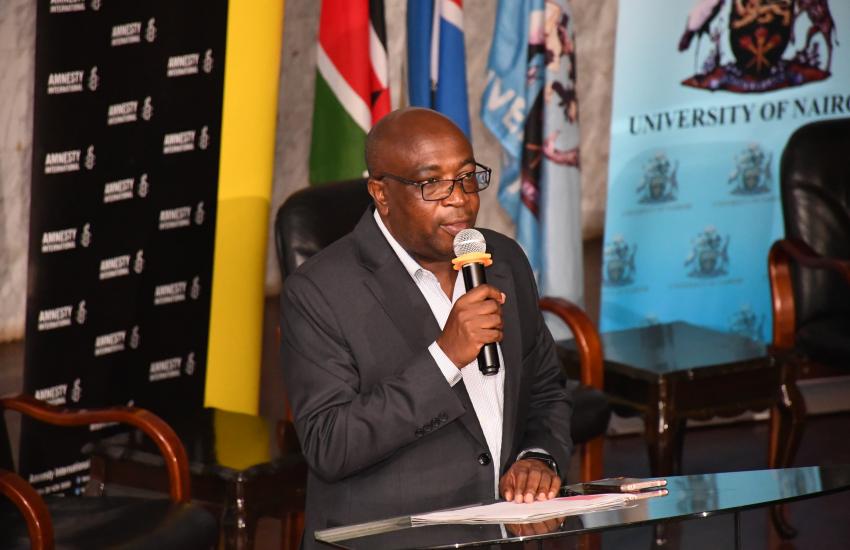IDS-UON, Amnesty International Kenya, and The Platform Magazine host the 2024 human rights conference
On Thursday, 25th April 2024, human rights defenders, active citizens, academicians, and experts gathered at the University of Nairobi Towers Chandaria Auditorium to discuss human rights issues covered in the 2023/24 Amnesty International Global Annual Report and to issue policy recommendations on ensuring the full realization of these rights. This year’s conference focused on the freedom of conscience, religion, belief, and opinion.
The conference also discussed topics covered in the Amnesty International Global Annual Report, including extrajudicial executions and enforced disappearances, conflict, the right to protest, the right to health and a healthy environment, freedom of expression and assembly, LGBTI persons’ rights, and the rights of women and girls.
In his welcoming remarks, Prof. Paul Kamau of IDS said there can never be development without respect for human rights.
Sarah Jackson, Deputy Regional Director of Amnesty International, Eastern Africa Regional Office noted that we should not only deal with human rights violations as symptoms but also look at the root causes. She added that we need to acknowledge the importance of moving with the changing time(s). “In a period of accelerated change, we need human rights frameworks that also change with time.”
Speaking on gender-based violence, Dr. Japheth said, “Harm caused by GBV comes in a variety of visible and invisible forms, it also includes the threat of violence.”
An issue of concern was raised on whether we have a sufficient legal framework to support religious freedom and, at the same time, ensure effective regulation and oversight of religious institutions. The panelists noted that there's a need to act with many actors within the human rights ecosystem, infuse human rights language, and tackle issues on the instrumentalization of human rights.
Joining the event via ZOOM, Rev. Adam Taylor contributed to this issue by stating that, "Neither master nor servant, the church must be the conscience of a state and nation. The Shakahola Massacre is a mass human rights violation and a national disaster."
The event attended by more than 300 people physically and 100+ via Zoom ended with a question and answer session. The panelists assured the audience that the future is not as bleak as it sounded during the afternoon-long discussion, and we can lean on the strength of those who came before us, walking the path we walk today to speak up and ensure the upholding of human rights for all.


